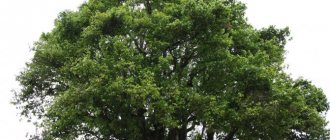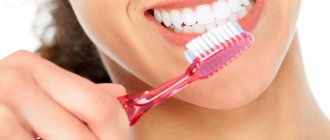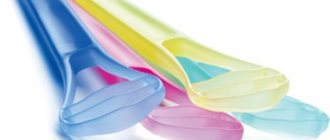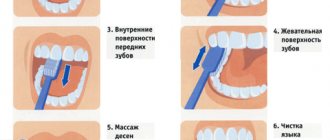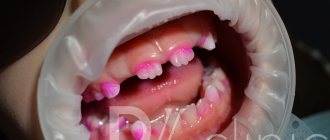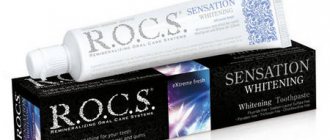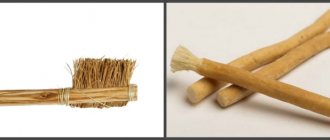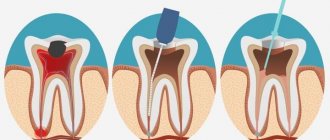Miswak is a complete replacement for conventional teeth cleaning products. It is used for both hygienic and therapeutic and prophylactic purposes in the treatment of diseases of the oral cavity. The use of miswak requires some additional skills, so it is recommended that you become familiar with it before you begin to actively use it.
Where does miswak grow?
The tree from which miswak is made is called “Salvadora persica” (from Latin). In Arabic, the name of this useful shrub is “Arak”. Grows in subtropical and tropical climates. The “toothbrush tree” can be found in India, Pakistan, North Africa, and the Arabian Peninsula. This is a small shrub up to 5 m high. The bark is brown, with a pleasant smell. The leaves are edible, with a mustard flavor (which is why arak is also called mustard tree). The leaves are used in India as a green for vitamin salads.
Salvadora Persiana grows in desert and clay soils. Harsh growing conditions contribute to the accumulation of large amounts of biologically active substances in the plant. This is necessary so that the tree can survive in unfavorable conditions.
Restrictions for pregnant women and children
Miswak is allowed to be used during pregnancy and breastfeeding. The product does not affect the development of the child and does not contain allergic components. It is believed that miswak can affect the taste of breast milk, but this varies from person to person.
This is interesting: The best teeth whitening products that work
Sticks can be given to children from 5 months to chew. The product helps ease teething, relieve discomfort and relieve swelling. Parents should control this process; they should not give a miswak stick to their child unattended, as they may choke or injure their throat.
History of application
Miswak is very popular in the Middle East and Southeast Asia, that is, where the Arak tree grows. Local residents dig up the flexible long roots of the plant (or cut off branches) and cut them into sticks of the required length. The twigs make a juicier and more flexible miswak, and the roots contain more nutrients.
This practice of making oral hygiene products goes back thousands of years. Salvadora Persian sticks were used by the Babylonians long before our era. Later, the tradition of using dental sticks was supported by Islamic countries. The Prophet Muhammad himself brushed his teeth with siwak and recommended it to others.
Today, miswak has become widespread among vegans and supporters of a healthy lifestyle, as well as those who prefer natural hygiene products.
Sivak. Miswak
Miswak (Arabic: المسواك), siwak (Arabic: سواك) is a toothbrush made from the branches and roots of the arak tree (Salvadora persica), when chewed, the fibers are separated and turned into a brush.
Miswak
Miswak was used in the pre-Islamic era, but has not lost popularity in the east today. Its use spread from the Middle East to countries in South and Southeast Asia, where it is known as "chew stick" (Malay: Kayu Sugi).
In Islam, using miswak is a desirable action (sunnah). The hadith says that the use of miswak almost became fard (duty) for Muslims. Prophet Muhammad said:
If I were not afraid of difficulties for my community (ummah), then I would tell them to use miswak with every ablution.
- Imam al-Bukhari sb. Hadith "Sahih"
Use miswak as it cleanses your mouth and makes the Lord pleased with you. Angel Jibril recommended miswak to me so often that I thought it would become fard for my ummah. And I myself use miswak so much and often that I even fear for my teeth.
— Abu Umaamah
Miswak is popular among supporters of natural nutrition (vegans, vegetarians, raw foodists). Along with it, other hygiene products are used, such as the fruits of the soap tree (soap nuts Trifoliatus and Mukorossi), alunite, Shikakai soap beans.
Useful properties of natural brushes
A distinctive feature of the branches and roots of Salvadora Persiana is that when chewed, the stick is divided into numerous fibers and turns into a brush (brush), which is convenient for cleaning teeth.
All parts of Salvadora Persiana have a healing effect on the human body.
Medicinal properties:
- antiseptic (antibacterial, antifungal);
- anti-inflammatory, wound healing, anti-ulcer;
- painkiller.
In addition to making sticks, arak is used as a medicinal raw material. The alcohol solution inhibits the growth of pathogenic bacteria. The aqueous extract is effective against candidiasis (thrush).
The extract of this plant is also added to toothpastes, and anti-inflammatory tinctures and powder are prepared from it. For oral hygiene, they produce “Miswak” toothpaste, as well as tooth powder with the same name.
With regular use of dental sticks, there is virtually no need for toothbrushes and toothpastes. Using miswak helps maintain white teeth and healthy gums.
The beneficial properties of miswak are due to its composition, which includes:
- glycosides (salvadoside, salvadoraside);
- vitamin C;
- tannins (tannins);
- flavonoids (quercetin);
- routine;
- fluorides;
- calcium;
- silicon oxide;
- sulfur;
- camphor;
- essential oils.
Tannins have a strong anti-inflammatory and hemostatic effect, promote the healing of wounds in the oral cavity with stomatitis, prevent the development of infection, which serves as the prevention of caries. Also effective for bleeding gums and gingivitis. Fluoride suppresses the activity of bacteria that cause caries and preserves enamel. Calcium protects teeth from decay. Silicon dioxide has a bleaching effect. Essential oils relieve pain, relieve inflammation, and prevent the formation of tartar. Vitamin C restores damaged tissues and helps strengthen the immune system.
Advantages of sticks:
- prevention of the formation of tartar, caries and periodontal disease;
- effective whitening, plaque removal;
- eliminating stains, restoring enamel uniformity;
- destruction of pathogenic microorganisms, including fungi;
- restoration and maintenance of normal microflora in the oral cavity;
- strengthening gums.
In its antimicrobial action, miswak is similar to such common antibacterial drugs as Chlorhexidine and Triclosan. Therefore, it can be used to prevent bacterial infections in people who do not tolerate pharmaceutical drugs well.
Sivak – toothpick made of arak wood
The Messenger of Allah (peace and blessings be upon him) said: “ I commanded you to use siwak (the root of the arak tree, used for cleaning teeth), because it has ten wonderful properties: 1) it cleans the teeth; 2) pleases the Lord; 3) angers Satan; 4) those who use it are loved by the Merciful Allah and the angels; 5) it strengthens the gums; 6) reduces mucus; 7) refreshes the mouth; improves vision; 9) eliminates bad odor from the mouth and stomach. The use of siwak is sunnah ." Then the Messenger of Allah (peace and blessings be upon him) said: “ Namaz with siwak is seventy times more valuable than prayer read without its use ” (Ibn Hajar al-Askalani).
2) pleases the Lord; 3) angers Satan; 4) those who use it are loved by the Merciful Allah and the angels; 5) it strengthens the gums; 6) reduces mucus; 7) refreshes the mouth; improves vision; 9) eliminates bad odor from the mouth and stomach. The use of siwak is sunnah ." Then the Messenger of Allah (peace and blessings be upon him) said: “ Namaz with siwak is seventy times more valuable than prayer read without its use ” (Ibn Hajar al-Askalani).
Sivak (miswak) is a yellow, tan or gray colored stick that is used by Muslims to clean teeth and freshen breath. Siwak is made from the roots and branches of Salvadora persica, known to most Muslims under the Arabic name “al-arak” or simply “arak”. This remarkable plant, which is of great importance in the daily life of every Muslim, is found wild in the deserts of Africa, the Arabian Peninsula, Western and South Asia.
Arak is an evergreen shrub with numerous branches and small twigs or a small tree up to 3.5 m high with a wide, low crown. It has a very developed root system, allowing the plant to gain a good foothold in the soil and extract water from great depths.
The leaves are fleshy, of various shapes - from oval to lanceolate, with a sharp or blunt tip, smooth, shiny, ash-green. The flower is goblet-shaped with four white-green rounded petals. The fruit is a berry 6–7 mm in diameter, yellow or reddish in color with a strong aroma and a sweet, slightly pungent taste.
The wood of the roots and branches of the tree is penetrated by a large number of alternating layers of thin-walled vessels and thick-walled fibers. This structure gives arak wood both softness and flexibility. If you crush the tip of a stick made from the wood of roots or branches in one way or another, then a kind of brush is formed in this place, in which soft and hard bristles alternate, almost ideally suited in their mechanical properties for cleaning tooth enamel. This ideal natural brush has been used by Muslims all over the world to brush their teeth for over 1,400 years.
The most prized item is siwak, made from the roots and branches of trees that grow in Saudi Arabia and Yemen. Here you can find it in any store that sells Islamic paraphernalia. A sign of a good siwak is a fairly strong and pleasant smell, taste and flexibility. Sivak allows you to do without toothpaste, and you can use it at any time, anywhere.
In The Canon of Medicine, Abu Ali Hussein Ibn Abdullah Ibn Sina argued that the best tree for making toothpicks is the one that has astringent properties and a burning taste (arak and olive tree). There he also wrote about how to use sivak correctly: “It is also necessary to constantly clean your teeth from what gets stuck in them, without inserting the toothpick deep and far - this harms the gums, loosens the teeth, destroys the shine and enamel of the teeth and predisposes them to the perception of the outflow of vapors that rise from the stomach. If you use a toothpick in moderation, it gives shine to your teeth, strengthens them and your gums, prevents the formation of cavities and gives a pleasant smell to your breath.”
If sticks from branches or roots have been stored for a long time and have become dry and hard, they should be placed in water for a while, where they will swell and become soft.
After using the siwak, it is advisable to wash it, as the wife of the Prophet Aisha (may Allah be pleased with her) did, whose words on this matter are given in one of the hadiths: “ The Prophet (peace and blessings be upon him) used the siwak and gave me to wash it .” When the bristles at the end of the siwak wear out, they need to be cut off and done again.
It is advisable to use Sivak even for those who do not have teeth, since this action strengthens the gums, has a healing effect on the entire body and, above all, is sunnah. Sivak contains natural substances that have a variety of effects on the human body. The most important of them are those that have an antibacterial effect, equally well suppressing the proliferation of pathogenic microbes in the oral cavity and gastrointestinal tract. Another, no less important group of tannins prevents bleeding gums. Natural substances contained in the branches and roots of the tree have an effective effect on the oral cavity, preventing the development of periodontal disease, gingivitis, caries and the formation of tartar.
Using siwak
How to use siwak? First you need to scrape off the bark at a distance of 0.5 cm from the end, then chew this place or break it with a hammer until it turns into a kind of soft brush, then carefully, but not forcefully, wipe the teeth from the outside and inside, along and across. Anyone who is going to brush their teeth and massage their gums with siwak for the first time should be prepared for the fact that its taste will seem somewhat harsh, and a burning sensation will arise in the mouth, somewhat similar to that caused by mustard. But this sensation, which is created by the aromatic essential oil, is evidence of the good quality and beneficial effect of the siwak, and one quickly gets used to it. It is believed that as a result of gum massage and the simultaneous exposure to essential oils, which have a somewhat pungent taste, active points located in the oral cavity are stimulated, which regulate the functioning of the ears, eyes, nose, tongue and pharynx. These points also regulate the functioning of the digestive organs and cardiovascular system. Siwak massage of active points in the oral cavity also helps maintain a clear mind and memory until the last minutes of life.
Thus, only one siwak, used with faith in the soul and with intention on the lips, can replace a large number of medicines for a mere mortal.
The arak tree is a real gift from Allah to people, helping to maintain health, since all its parts contain natural substances that have a healing effect
A decoction of young branches has anti-fever and anti-ulcer effects.
The leaves of the plant, which taste like mustard, were added to food by local residents as a seasoning and harvested as fodder for camels. The juice of the leaves, which has a local irritant effect, was used externally as a rub for rheumatism, and taken internally, it was considered an antidote to poisons of all kinds.
Flowers contain essential oil, which has a stimulating effect. An infusion of dried flowers was recommended for use as a mild laxative.
Sweet-tasting, aromatic edible fruits replaced local residents with sweets, which also had a medicinal effect. They served as a medicine that stimulated the nervous system during depression and had a diuretic and carminative effect.
The resin, which is abundantly released at the site of damage to the bark of trunks, was used as incense and was part of cosmetics.
In the old days, peoples living in the desert obtained much-needed salt from the ashes.
It should be remembered that a siwak is not just a toothbrush, so before using it you need to make a mental intention to cleanse for the sake of Allah.
Karagishiev
INFOGRAPHICS
How to choose a quality miswak
The sticks may have a salty taste if the plant grew in brackish soils. Such a miswak may even have a white coating, but at the same time it is of quite high quality. A sweet taste indicates the addition of synthetic ingredients to increase shelf life. It is better to buy siwak without additional preservatives. The natural substances of the plant are quite enough to protect against spoilage. Provided that the miswak is of high quality and packaged fresh. It is also not recommended to purchase siwak with additional flavors, for example, mint, since in this case synthetic flavors are used.
Thin sticks (up to 1 cm in diameter) are more tender, easier to chew, and more juicy. They are best used for painful gums that are prone to bleeding. Thick ones have hard fibers, so this brush has the best whitening effect. But its coarse fibers penetrate harder into hard-to-reach places, making it more difficult to clean the side surfaces of the back teeth.
A good siwak has a strong, pleasant aroma. The stick should not be too thick or too long. The average length is 15–20 cm. This miswak is best suited for comfortable use.
How to use the roots for cleaning?
To clean the tooth surface, it is better to use sticks with a diameter of 1 centimeter. If its size is larger than the suggested one, this means that the tree is older, and accordingly, the Miswak will be tough. Large sticks are not able to penetrate hard-to-reach places, which means that the cleansing will not be done well.
Before using Sivak, it must be rinsed well under running water.
Taking a stick, one end of it must be cleared of the layer of bark, then chew it well to form peculiar bristles. This end is used to clean the teeth and the surface of the tongue, where more bacteria also accumulate. If your teeth have thinned enamel, then you should not put too much pressure on the surface with the chewed root so as not to damage it.
There is no need to use additional toothpaste when cleansing. In addition to the prescribed morning and evening procedures for cleansing the oral cavity, you can also use a stick after each meal.
How to properly use miswak to brush your teeth
You bought a stick of miswak, what to do:
- Remove the new stick from the vacuum packaging.
- Rinse with water.
- You can peel off the bark with a knife or scissors, about 1.5–2 cm. But it is better to leave it as is to retain more useful substances.
- Chew the tip until a brush forms. If it’s hard to chew, you should soak it in water, but then some of the nutrients will go there. Chew until the brush becomes comfortable for subsequent cleaning. It is worth noting that the very process of chewing miswak already has a healing effect. You can swallow saliva soaked in the juice of the stick, this is useful for the gastrointestinal tract. But this should be done only in cases where there are no pronounced inflammatory processes in the oral cavity and there is no development of infection.
- Brush your teeth, massage your gums, clean your tongue from plaque.
- Rinse the stick with water.
- Use at least 2 times a day, and preferably after each meal.
Some sources say that the brush can be used several times, only then cut and chew a new brush. This option is justified in terms of economy, that is, with this approach, the stick will last for a long time. But it is better to cut off the used brush with scissors after each cleaning, every day or at least every other day. In this case, the benefits of miswak will be maximum. This is especially important when miswak is used as a therapeutic and prophylactic agent to eliminate pathogenic microflora and to treat gums.
But if only mechanical cleaning of teeth is important, then one brush can be used as long as the villi are suitable for this. In this case, one stick can last for a month.
How to properly brush your teeth with a miswak stick:
- It is recommended to move the stick up and down (for the front teeth). Both the front and the inside need to be cleaned.
- The back teeth should be brushed especially thoroughly, including the chewing surfaces. That is, you need to clean your teeth from all sides.
- Don’t forget to clean your tongue, especially if there is a strong coating.
- If necessary, do an additional light massage of the gums. To do this, you need to pull the upper/lower lip with one hand and massage the gums with the other.
Brush your teeth for a few minutes. The more thoroughly the oral cavity is treated, the better the therapeutic effect.
Cautions:
- Do not put too much pressure on the enamel of teeth and gums, so as not to cause tissue damage;
- It is not recommended to hold the stick in your fist, as it is more difficult to control the force of pressure;
- You should not suck out the miswak so that the beneficial substances remain and act in the oral cavity;
- With thinned and sensitive enamel, it is recommended to brush your teeth very carefully.
Not only adults, but also children can use miswak for dental hygiene. Children should do this under adult supervision. It is necessary to ensure that children do not bite off or swallow the brush to eliminate the risk of lint getting into the windpipe.
The use of miswak is also permitted if there are restored teeth. But it should be taken into account that the enamel of artificial teeth will remain the same, while the remaining teeth will become whiter.
It is possible to use a dental stick during pregnancy, as well as during breastfeeding. The natural composition of miswak is beneficial for the body of a woman and child.
If you have any questions
Are you interested in a newfangled product, but not everything is clear about its application? Ask - we will answer!
- Can miswak be used by children? – There are no contraindications, just be careful not to damage the gums.
- At what age is it permissible for children to use miswak? – From 4 months, the mother can massage the baby’s gums with light movements. After teething, use a brushing stick. Adults do this, making sure that the child does not swallow the bristles.
- Is it allowed to brush “dead” teeth with a stick - without nerves? - Please. There will be a cleansing effect, but it will not be possible to whiten such teeth.
- Is it possible to brush your teeth with a stick every day? - Yes. But keep in mind that she doesn’t always reach the back sevens and eights well. Therefore, carry out this cleaning in addition to the usual procedure every other day.
- What are the consequences for the body of using a stick? – You will be surprised, but in a month or two you will notice an increase in vitality. Reason: The facial nerves have close connections with each other. Dental health improves and your vision may become a little sharper.
- Is the sivak stick allowed during pregnancy? - Certainly. As with breastfeeding.
- Where to buy a fashionable “accessory”? – Ideally, in countries where Salvadora Persiana grows. But you can also order online.
- How long does a stick remain usable? – Duration – 2 months. If a sour smell, gray or yellow coating appears, throw away the miswak, it is spoiled.
- Where does the white coating on the stick come from? Is it dangerous? - No. This is salt released as a result of the evaporation of moisture. Miswak does not lose its properties.
Miswak powder - features
As an alternative or in addition to the toothpick, you can purchase a charcoal-based toothpowder made from arrack wood. This natural remedy has a pronounced whitening and anti-inflammatory effect, reduces bleeding gums, and freshens breath. The composition includes additional ingredients that increase the healing properties of the powder (cloves, black cumin, cinnamon).
It is used in the same cases as sticks: for the prevention and treatment of caries and gum disease.
The powder is more convenient to use, as it does not require special preparation and storage. It is more suitable for children, as well as those who have difficulty chewing a stick for a long time.
I buy pure miswak powder without additives and make my own tooth powder according to my recipe. I take one part miswak, one part ground herbs and one part store-bought “Special” or “Mint” tooth powder. I mix everything, add essential oils and sift through a strainer. I store it in a jar with the lid closed.
What is the price
The cost of a natural toothbrush varies depending on the length and thickness. A small stick 15 cm long costs about 150 rubles. They are sold in vacuum packaging individually. Some manufacturers add flavoring - lemon, mint.
This is interesting: Toothpaste against bleeding gums - the most effective and fastest
Sivak Sewak al-Falah - made in Pakistan, 15 cm long, sold in vacuum packaging one piece at a time, cost about 150 rubles.
The Al-Khaleej branch is a black stick, does not require the use of toothpaste, costs 80-100 rubles.
Sivak Khair - made in Pakistan, has a length of 15 cm, cost - 90-120 rubles.
At the same time, you can purchase a case for convenient storage. You should not immediately switch to cleaning your mouth with such a stick. It is better to use it between regular teeth brushing, and when you have the skills to clean each tooth, then you can switch to the siwak stick. You can’t do without consulting a dentist and a specialist’s opinion on this matter.
How to store a miswak stick
Sometimes, along with the stick, you can immediately purchase a container for storing it. This is convenient, but a regular toothbrush case will do. In any case, you should keep the miswak in a closed container. Otherwise, most of the volatile essential oils will evaporate, and the stick itself will become moldy. Such a siwak can no longer be used.
It is best to store the stick with the brush cut off. In this case, bacteria will not accumulate at the end of the stick.
Fresh sticks are sold in vacuum packaging with an expiration date indicated. It is recommended to store the unopened stick at a temperature no higher than 15 degrees. After opening, the period of use should be no more than 3 months.
Positive properties
Miswak contains more than 20 natural substances, including fluoride, mineral salts, essential oil, vitamin C, which have a positive effect on the condition of the oral cavity and teeth. Dentists agree with the effectiveness of the stick in the prevention of carious and non-carious dental diseases.
During cleaning, it copes with unpleasant odor, plaque, and small bristles penetrate into the spaces between teeth, where hard stone likes to accumulate.
Benefits of sivak for the oral cavity:
- eliminates halitosis, after cleaning the unpleasant odor is neutralized;
- the enamel is strengthened, which prevents the destruction of hard tissues;
- removes soft plaque, thereby preventing the accumulation of hard deposits;
- cleans spaces between teeth well;
- relieves pain from periodontal disease;
- helps in the treatment of inflammatory diseases of the mucous membrane.
The peculiarity of miswak is that it replaces not only a brush, but also a paste. The presence of more than twenty-five components in the plant eliminates the need to use additional funds.
We invite you to buy high-quality Sivak (miswak) sticks in our store
We sell only fresh, not overdried Sivaki (Miswaki), which are stored in sealed packaging, thus they do not lose their properties, and by placing an order, you can be confident about the quality of the product.
Sivak (miswak, siwak, sewak, miswak) is a unique natural substitute for a toothbrush with toothpaste. Moreover, it is in no way inferior to them, and even in many respects far superior to them. Sivak (Miswak) sticks are known for their healing properties and containing a huge number of medicinal components, such as essential oils, antihistamines, tannins and anti-inflammatory substances.
The history of the use of Sivak goes back to ancient times. Reliable information that has reached us from the depths of centuries completely agrees with modern scientific research. These studies confirm that when using Siwak, mineral elements and beneficial substances penetrate into the tooth enamel. Miswak has a beneficial effect on the functioning of internal organs and body systems, improves vision and memory, restores intestinal function, enhances potency, normalizes the functioning of the liver and gall bladder, improves cardiovascular activity. And this is not a complete list of the beneficial properties of the Sivak twig.
Miswak helps strengthen gums, prevent tooth decay, soothe the dental nerve and relieve toothache. In addition, the use of miswak refreshes the oral cavity, breath, polishes and whitens tooth enamel, improves appetite, has a positive effect on the vocal cords, digestion and the entire gastrointestinal tract as a whole.
